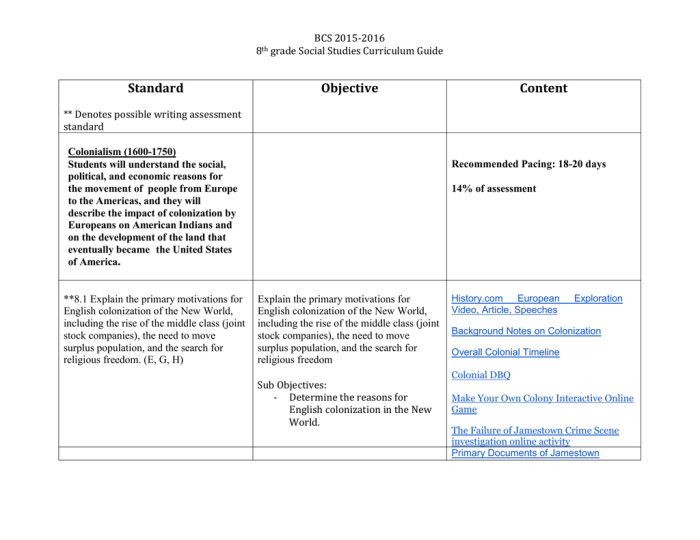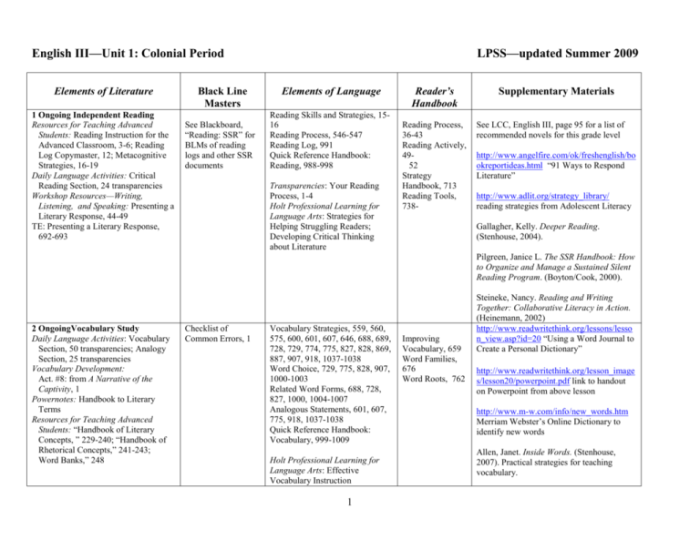Colonial Beginnings Icivics Answer Key offers a comprehensive guide to the pivotal era that shaped the United States. From the arrival of European explorers to the establishment of the thirteen colonies, this answer key provides a clear and engaging overview of the events, motivations, and challenges that laid the groundwork for the American nation.
The key events leading up to the establishment of the colonies, the diverse reasons for immigration, and the various forms of colonial government are meticulously Artikeld, providing a deep understanding of the formative years of American history.
Colonial Beginnings of the United States

The arrival of European explorers and settlers in North America marked the beginning of the United States’ colonial history. This period was characterized by the establishment of thirteen colonies along the Atlantic coast, each with its own unique history and characteristics.
Timeline of Key Events
- 1492: Christopher Columbus’s voyage to the Americas
- 1607: Founding of Jamestown, the first permanent English colony in North America
- 1620: Pilgrims establish Plymouth Colony
- 1636: Founding of Harvard College
- 1732: Founding of Georgia, the thirteenth colony
Reasons for Coming to the Colonies
People came to the colonies for a variety of reasons, including:
- Economic opportunity
- Religious freedom
- Political freedom
- Adventure
Establishing the Colonies
Forms of Colonial Government, Colonial beginnings icivics answer key
The colonies were governed in a variety of ways, including:
- Royal colonies: Governed directly by the British Crown
- Proprietary colonies: Governed by individuals or companies who received a charter from the Crown
- Charter colonies: Governed by a charter granted by the Crown that gave them a degree of self-government
Economic and Social Life
The colonies developed a diverse economy based on agriculture, trade, and manufacturing. Social life was often centered around the church and the community.
Regional Differences
The colonies developed distinct regional characteristics:
- New England: Known for its Puritanism, shipbuilding, and fishing
- Middle Colonies: A diverse region with a mix of agriculture, trade, and manufacturing
- Southern Colonies: A plantation economy based on tobacco, rice, and indigo
The Road to Revolution

Growing Tensions
Tensions between the colonies and Great Britain grew over issues such as taxation, representation, and the regulation of trade.
Key Events
- 1765: Stamp Act
- 1773: Boston Tea Party
- 1775: Battle of Lexington and Concord
- 1776: Declaration of Independence
Roles of Key Individuals and Groups
Individuals and groups played key roles in the revolutionary movement, including:
- George Washington
- Thomas Jefferson
- Benjamin Franklin
- The Continental Congress
Creating a New Nation: Colonial Beginnings Icivics Answer Key
Challenges Faced
The newly independent United States faced a number of challenges, including:
- Creating a stable government
- Establishing a national economy
- Defending against foreign threats
Articles of Confederation and Constitution
The Articles of Confederation, adopted in 1781, created a loose confederation of states. The Constitution, adopted in 1789, established a stronger national government.
Timeline of Key Events
- 1781: Articles of Confederation adopted
- 1787: Constitutional Convention
- 1789: Constitution adopted
- 1791: Bill of Rights adopted
Expert Answers
What is the significance of the colonial beginnings period in American history?
The colonial beginnings period laid the groundwork for the American Revolution and the establishment of the United States as an independent nation.
What were the key events leading up to the establishment of the thirteen colonies?
The key events included the arrival of European explorers, the founding of Jamestown in 1607, the establishment of the Plymouth Colony in 1620, and the growth of the colonies throughout the 17th and 18th centuries.
What were the different reasons why people came to the colonies?
People came to the colonies for a variety of reasons, including economic opportunity, religious freedom, and political asylum.